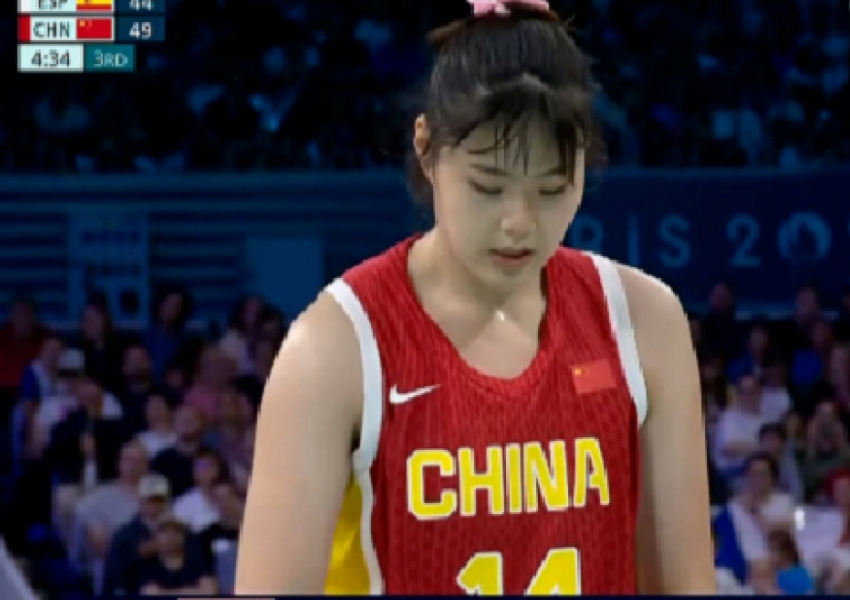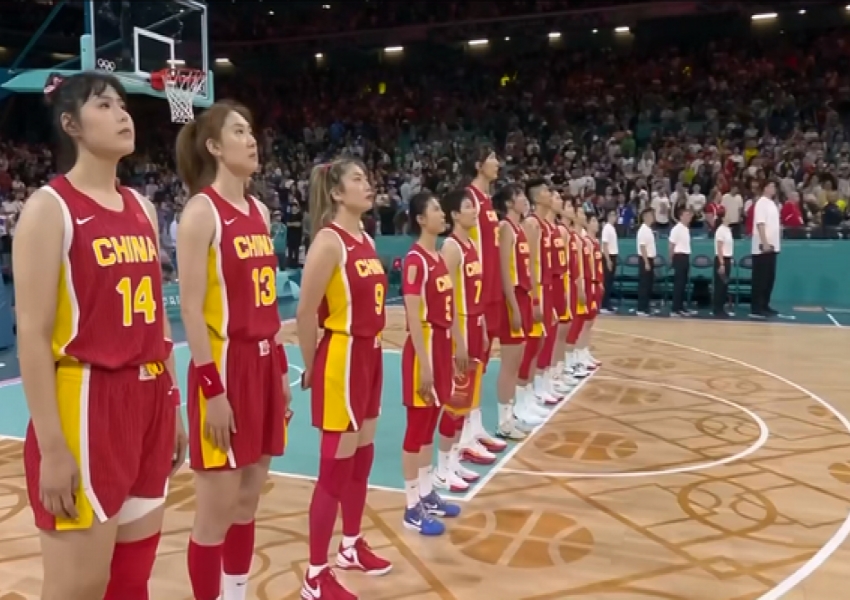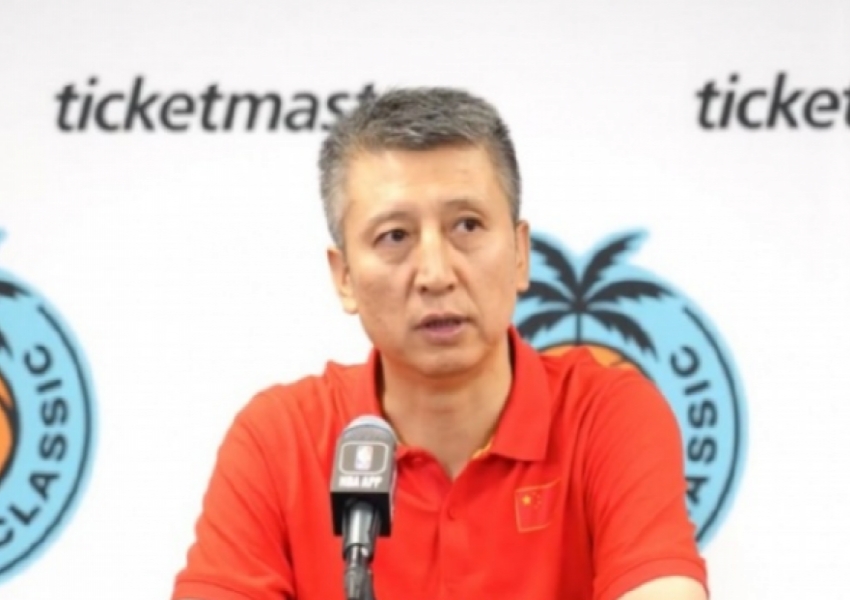31 Points and 12 Free Throws: Li Yueru Shines in Olympic Opener After WNBA Stint, Leaving Teammates Stunned
In their Paris Olympics opener, the Chinese women's basketball team faced off against Spain. The starting lineup for China included Li Yueru, Sun Mengran, Li Yuan, Li Meng, and Yang Liwei. Despite their previous disappointing performance in warm-up games, which included a seven-game losing streak, the Chinese women's team, crowned as the World Cup runners-up and Asian Cup champions and currently ranked second in the world, was not favored to win. However, once the official games began, the team displayed a renewed spirit, reclaiming their stature as one of the world's elite squads.

China started the first quarter strong, dominating Spain and ending the quarter with a 22-13 lead. Spain responded in the second quarter, outscoring China 20-15, but China still held a 37-33 lead going into halftime. The second half saw a tightly contested battle between the two teams, with neither able to pull away. In the third quarter, China narrowly outscored Spain 22-20, maintaining a slim lead.

In the final quarter, China seemed poised for victory but made crucial errors in the closing moments. Li Meng missed a free throw, and Yang Liwei committed a foul that resulted in a 3-point play for Spain. This series of mistakes allowed Spain to tie the game and push it into overtime. In the extra period, Spain came out with high energy and offensive efficiency, while China struggled to keep up, relying mostly on drawing fouls to stay in the game. Ultimately, Spain emerged victorious with a 90-89 win, securing a dramatic comeback.

Despite the loss, Li Yueru had an outstanding performance, playing 33 minutes as a starter. She made 9 of 16 field goals and 12 of 13 free throws, amassing 31 points and 15 rebounds, including 10 offensive boards. Her efforts in overtime, including a critical three-pointer, almost brought China back from the brink. This game demonstrated the wisdom of Li Yueru's decision to leave the Chinese team's long-term training camp to compete in the WNBA over the summer.
In contrast, her teammates Li Meng (13 points, 11 assists) and Han Xu (8 points, 4 rebounds), who chose to stay with the national team's training program, had less impactful performances. This raises questions about the effectiveness of China's traditional approach to long-term training camps. It suggests that participating in high-level competition, such as the WNBA, may offer players more significant opportunities for improvement.
The Chinese men's basketball team, now under the direction of a domestic coach, has doubled down on long-term training camps. They plan to hold another extensive training session in early August, lasting until late September. This approach has drawn criticism, as it disrupts the players' schedules and preparation for the upcoming CBA season, which starts in mid-October. The extended training periods leave players with little time for rest and recovery, potentially impacting their performance in the league.
Moreover, there are concerns about the quality of the training and the opponents they face during these camps. Previous overseas training sessions yielded unsatisfactory results, leading to speculation that the team might only play against semi-professional teams like the Macau Black Bears in internal scrimmages. Critics argue that such an approach is counterproductive and that the team should focus on playing against high-quality opponents to truly improve.
The Chinese women's basketball team's experience at the Olympics highlights the potential benefits of exposing players to top-tier competition. Li Yueru's exceptional performance following her WNBA stint is a testament to the value of playing in a highly competitive environment. As China continues to pursue success on the international stage, it may be time to reevaluate their training strategies and embrace opportunities that allow their players to compete and grow at the highest levels.
Copyright Statement:
Author: focusnba
Source: FocusNBA
The copyright of this article belongs to the author. Reproduction is not allowed without permission.
Recommended Blog
- Official Debut Confirmed! PUA and Tatum: Is America’s Future Star Forward Really Up to the Task?
- Officially Decided to Trade! Farewell, Chen Yingjun! An Epic Offseason in the CBA
- Zero Points, All Zero Points! Team USA Faces Internal Conflict as KD and LeBron Dominate
- Really That Fierce? Why Giddey Dominates in FIBA After Being Undervalued in the NBA
- Goodbye Beal! Tyus Jones Takes a $10 Million Pay Cut to Join the Suns as Starting Point Guard
- 4-for-1 Markkanen Trade! The Spurs Make a Bold Move to Shake Up the Western Conference
- No Takers! Has 28-Year-Old D'Angelo Russell Really Declined That Much?
- Olympic Debut: 12 Shots, 17 Points! Goodbye, Thunder! Finally, Giddey Can Lead a Team...
- 15 Shots for 24 Points! Defeating Serbia’s U18 Team! The Only Chinese Forward with NBA Potential…
- Blockbuster Trade Incoming? 76ers Eye Markkanen! An Epic Offseason in the East...
Hot Blog
- Tension in New York? Mikal Bridges Calls Out Thibodeau’s “Plantation-Style” Rotation!
- Kevin Durant = Three First-Round Picks? In Just Two Years, the Suns Lost Big!
- Major Decline! What Is De'Aaron Fox’s True Level with the Spurs?
- Completely Out of the Rotation! Why 25-Year-Old Cam Reddish Can't Get on the Court Anymore
- A Miraculous Buzzer-Beater—But What Level Is Kawhi Leonard Really At Now?
- 4,000 Threes! Just How Impossible Is Stephen Curry’s Latest Record?
- $293M Supermax and an MVP? Is There Any Doubt Left for Shai Gilgeous-Alexander?
- $110 Million Over Two Years—Butler Was Worth Every Penny
- $418M for Luka Dončić? Is the Lakers' New Star Worth It?
- 31-21-22! Did Jokic’s Historic Triple-Double Just Reignite the MVP Race?